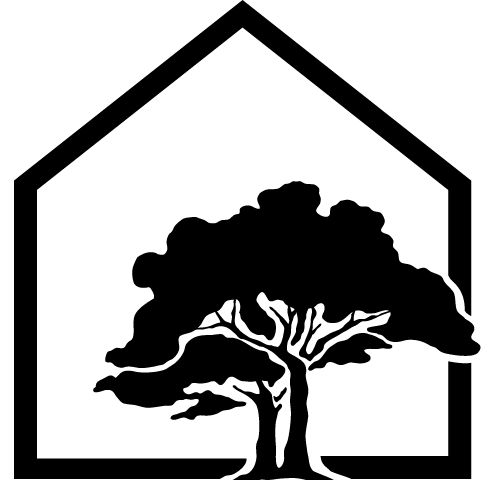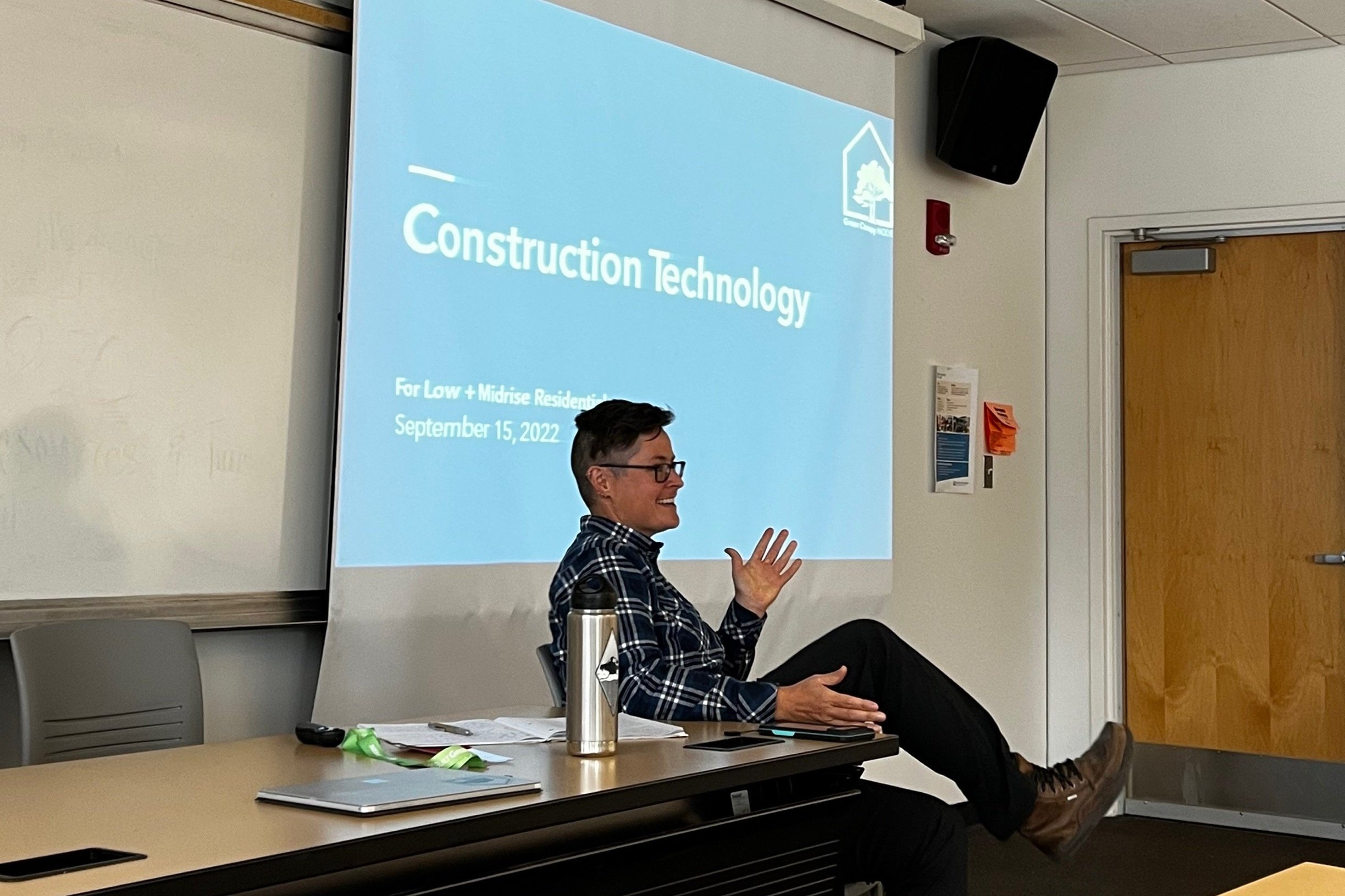The Built Green Conference is an annual gathering designed to provide valuable and cutting-edge information on green building and sustainability. At the convention, it is easy to notice attendees’ general desire to keep up with industry advancements, and what innovations builders are pushing out. Green Canopy NODE’s Co-CEO Bec Chapin was selected to lead a session on “Construction Technology for Low and Midrise Residential,” engaging project managers, city inspectors, architects, and other guild professionals to explore together the opportunities for innovation in the industry.
Given the current affordability and climate crises, how do we use the power of technology to build more efficiently, affordably, and sustainably? Bec focused on three key innovations: material and component products, robotics, and automation software.
Materials and component products range from mushroom insulation to prefabricated modular buildings. They can increase efficiency and sustainability. Green Canopy NODE creates products that fit into the manufactured component category: these types of products deliver efficiency by reducing on-site construction schedules, the labor hours needed, and by allowing for manufacturing levels of product quality control.
Robotics are an unfolding possibility – the technology is here today and will continue to evolve in the future, but there is a gap to bridge when it comes to its adoption. However, construction is driven by safety to protect individuals from dangerous tasks or from those that are repetitive and hard on the human body. For instance, drones are setting a new frontier for safety, efficiency, and accuracy – allowing builders to conduct quality controls and mapping with more security. Drones doing roof inspections or cleaning windows make for safer and more efficient construction sites. At the same time, robots can undertake time-consuming and risky tasks for a fraction of the cost, like cleaning the windows of a skyscraper. Still, we see people on ladders, risking life and limb.
When it comes to automation, software is something anyone can act on today – by implementing a CRM for customer relationship management, running bids, supervising client updates, and so much more. “If you find yourself doing the same task over, again and again, automate it!” advised Bec. Currently, there are countless software suites available to solve many real estate development tasks, such as estimating, construction management, take-offs, site updates, and payments, to name a few. Technology can save builders precious time while getting rid of complex spreadsheets. “If we work smarter and get those minutes back, what would we do with them? Burn out less and invest more time in building better and greener,” added Bec.
From Working in a Silo to Collaborating Together
As we think about even greater levels of efficiency, it’s time to embrace the possibility of AI in the industry. Harnessing the potential of technology and innovation in construction requires a shift out of our silos. There is real value in streamlining the various channels within the construction cycle. Green Canopy NODE’s vertical integration helps our clients and developments avoid the inefficiencies of segmented project execution. Our commitment is to build better and work smarter, by doing it together.
Learn more about how we're leveraging the power of technology.
Sign up for our newsletter and social media to become part of the Green Canopy NODE community.







